9 Social-Emotional Activities for Preschoolers
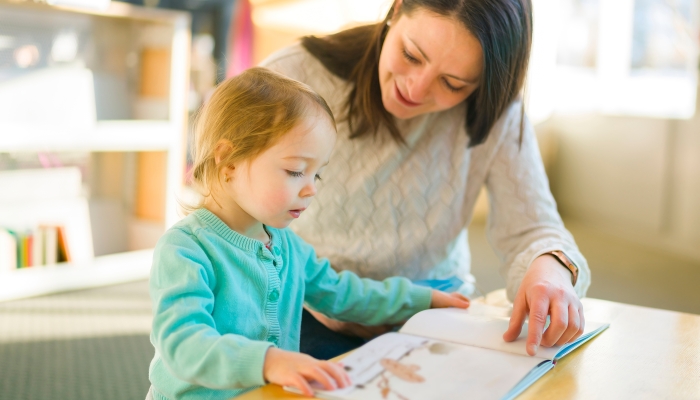
- Social-emotional activities for preschoolers help them learn how to manage their feelings, control their behavior, and maintain relationships.
- Activities like role play, playing with puppets, and playing games are excellent ways to build social-emotional skills.
- Preschoolers often mimic the emotions of their parents and caregivers.
- Every child develops differently, so you should consult your pediatrician with concerns.
I remember when I had my first son, I was unsure where to begin when it came to teaching him vital life lessons. It can be overwhelming as a parent to know you play a significant role in how your child develops, especially in the early years.
As a new parent, I didn’t realize how much my children would learn by watching me and how I handled specific situations. As children grow from toddlers to preschoolers, their social-emotional development continues to emerge, and it’s a vital period of growth for them, especially as their feelings play a larger part.
Understanding the best social-emotional activities for preschoolers can help with the development of your little one.
Social Emotional Development of Preschoolers
It’s no secret that kids have big emotions, and while parents want to encourage their children, it’s not always easy being on the receiving end. However, when parents step back and understand their children are going through a transitional phase in life, it’s easier to help with their different emotions.
How Do Preschoolers Develop Social-Emotional Skills?
Preschoolers develop social-emotional skills through listening, watching, and imitating those around them. Not only do they learn from their peers, but preschoolers learn social-emotional skills through the following:
- Family and home life
- Early childhood experiences
- Cultural backgrounds
- School interactions
- Their community
When parents understand the impact the surrounding world has on their child, they are more likely to understand normal social-emotional development.
Why Is Social-Emotional Development in Preschoolers Important?
Parents know there are many things to teach young children, but why is social-emotional development on the list? Here are some of the top reasons why social-emotional development is important in preschoolers. Social-emotional development:
- Helps teach self-control and self-regulation
- Aids in developing positive relationships
- Encourages children to develop empathy
- Helps preschoolers learn impulse control
- Teaches your child how to be a good friend
- Helps teach preschoolers that manners matter
If your preschooler doesn’t have well-developed social-emotional skills, you may notice it is difficult for them to build relationships, and they have a hard time keeping friends. It can be challenging for a parent to witness their child going through this, but there are several things a parent can do to help support them as they develop socially and emotionally.
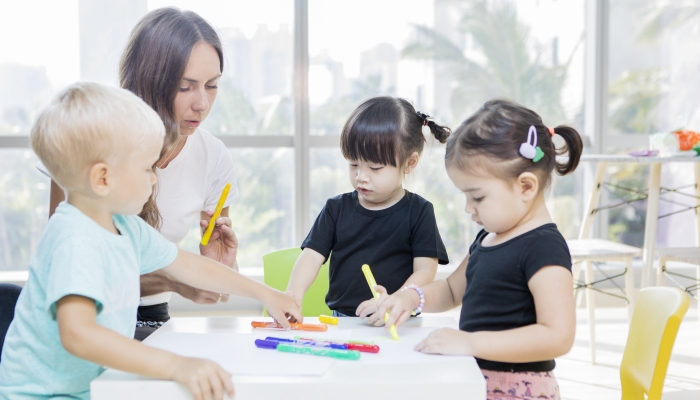
How Can You Support Your Preschooler’s Social And Emotional Development?
Being a parent means supporting your child in every situation, including aiding in their social and emotional development. You also can focus on their favorite social-emotional activities to make the process fun and enjoyable.
Parents can also engage in a reciprocal conversation with their preschoolers to encourage a back-and-forth conversation. A child can also tell a lot by their parent’s body language, so it’s important to remain calm when working on your child’s social and emotional development.
One of the best things you can do to support your preschooler’s social and emotional development is to understand your child’s natural temperament. When a parent allows their child to express their natural emotions, they are more likely to know it’s okay to feel the way they do.
What Are the Benefits of Social-Emotional Activities to Preschoolers?
1. Encourages Independence
A sense of independence in preschoolers helps them succeed in school and extracurricular activities and helps them adapt to routines and schedules. Independence also encourages a child to complete tasks like getting dressed, cleaning up, using the bathroom, and going to bed, which can help prevent bedtime tantrums.
2. Helps Develop Social Skills
Many children lack personal space awareness, so teaching them the importance of developing social skills will help them become more aware of others. The social skills preschoolers acquire at an early age help set the baseline for future interactions. Social skills also come into play as children interact with teachers and other adults besides the ones at home.
3. Promotes Relationships with Other Children
Not every friendship a child makes will last forever, but working on developing friendships early helps children with social-emotional learning. Children learn how to react to a friend’s feelings and understand what they are experiencing without judgment.
Children begin to develop a healthy view of emotions when they see other kids reacting similarly to specific life events.
4. Encourages Listening and Following Directions
A child who participates in social-emotional activities is more likely to listen and follow directions, according to the National Association for the Education of Young Children. Social-emotional activities teach children self-regulation, which includes listening when necessary and following important directions.
5. Works on Impulse Control
Preschoolers have difficulty with impulse control, but working on this life skill can help them create more significant relationships, become more independent, and help them make better decisions.
Children lacking impulse control are more likely to have behavioral problems, and parents may notice a decrease in their social skills.
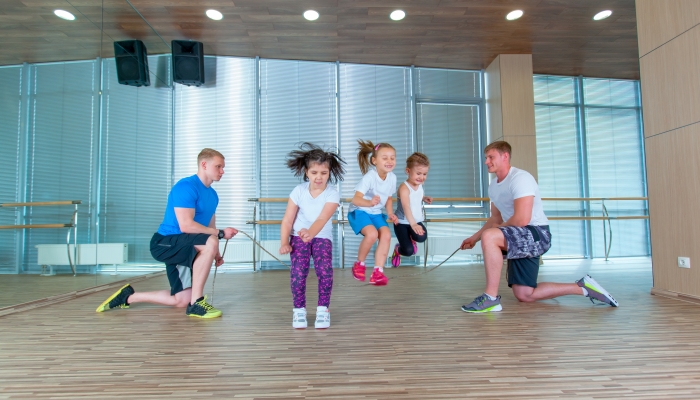
9 Social Emotional Activities for Preschoolers
1. Read Social Stories Together
There is never a wrong time to read books with your preschooler, and it’s one of the best social-emotional learning activities to do together. Social stories are books that teach social-emotional learning to allow children to relate to the feelings and emotions of the characters.
When the book is finished, you can ask your child how they think a specific character felt and how they would feel in the same situation. Teaching kids that they are not alone with their big feelings or current emotion helps them become comfortable with how they feel.
You can also come up with stories together, which allows kids to perform story-telling while encouraging social-emotional learning.
2. Board Games
Board games are another excellent social-emotional learning opportunity and allow preschoolers to learn valuable tools like taking turns, understanding directions, and vital social skills.
Activities for preschoolers should be fun while allowing them to work on important life lessons, like cooperative play through game playing.
3. Playing with Puppets
A puppet show is a fantastic opportunity for preschoolers to explore social-emotional learning, and it’s a fun way for kids to show creativity. If you don’t have puppets at home, you can create some with brown paper bags, which is another way for children to express their creativity.
Role-playing with puppets is an excellent way for a child to work on self-expression, and when children have a safe space to explore their feelings through, they are more likely to show emotions and develop social skills.
4. Get Involved in Sports
There are many qualities of sports that make them an appropriate social-emotional activity for preschoolers, including learning how to work on problem-solving skills, accept defeat, and work on social skills.
Preschool sports usually don’t involve keeping score, so it’s an excellent chance for children to work in small groups without the need for competition.
You also don’t need to sign your child up for sports, and instead let them play a game with other children their age, which teaches the same lessons as playing on a designated sports team.
5. Create Emotion Masks
It’s not always easy for preschoolers to describe their feelings because they likely can’t put them into words. However, creating emotion masks with various faces like happy, sad, or mad can help them better identify how they are feeling, and it’s also a fun craft project.
To make the craft project, draw faces on paper plates and have children attach popsicle sticks on the back, so they can hold them up to help describe their different feelings.
If it’s challenging for your child to identify how they are feeling, try holding up one of the faces, and ask them a time when they felt that specific emotion.
6. Dance Around the Room
Another method of understanding emotions is letting a child learn how their bodies feel when they dance around the room. Since there is no right or wrong way to dance, it allows children to express their emotions and feelings through movement.
Gaining self-confidence through dance can help a child in social situations where they may otherwise feel uncomfortable.
7. Play a Matching Game
Having fun social-emotional activities keeps kids interested and not always aware they are working on their feelings, although over time, you want children to know it’s okay to be aware of how they feel.
One matching game you can play together is where parents draw facial expressions on cards and have the children match them up. As you play, engage your child, and ask them about a time when they experienced specific emotions, like sad, happy, surprised, or mad.
8. Draw a Self-Portrait
Social-emotional development activities also include letting a child express their inner artist, like drawing a self-portrait. You can set the child in front of a mirror or allow them the opportunity to draw how they see themselves.
If your child isn’t sure what to draw, sharing ideas about how you would draw yourself can help boost their self-confidence.
Self-portraits are an excellent method of self-expression and offer parents a glimpse of how their children see themselves. It’s best to allow the child to express their creativity, even if the portraits don’t resemble them in the slightest.
Once their work is done, let them describe the picture to you, which will likely tell you a lot about how they see themselves.
9. Talk About Your Emotions Together
When adults talk about their emotions and feelings with preschoolers, they offer a safe space for the child to share how they feel.
Sharing emotions doesn’t have to feel stiff; instead, adults can offer ideas on how to share their feelings and let the child understand there is no right or wrong way to express their emotions.
FAQs
How does moving to a new place affect a child’s emotional and social development?
Going through frequent moves can have an overall effect on a child’s emotional and social development. One move may not affect a child; however, each additional move can add to overall stress levels and decrease in academic performance. However, the effects vary based on the age of a child.
For example, the MacArthur Foundation states that young children are more likely to experience a social impact from moving, while older kids are affected both socially and cognitively. As with any major life event, parents should work on preparing their child and helping emotionally in any way possible.
What is normal social-emotional development for preschoolers?
As with all developmental milestones, there is no “normal” social-emotional development because children don’t all fit into the same box. Children also develop at different rates and you likely see a difference in your own kids.
It’s important for parents to know that toddlers will likely play side-by-side instead of together, but as they get into preschool, you’ll likely find them more interested in other children. If you have concerns about your child’s development, you should speak with your pediatrician.
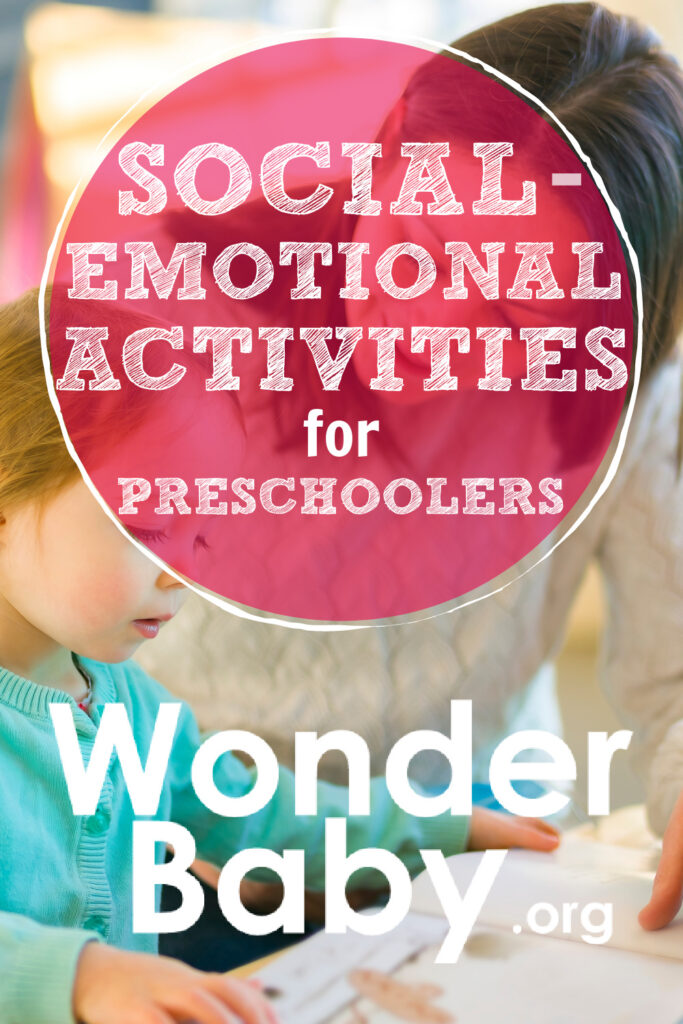
Related Posts
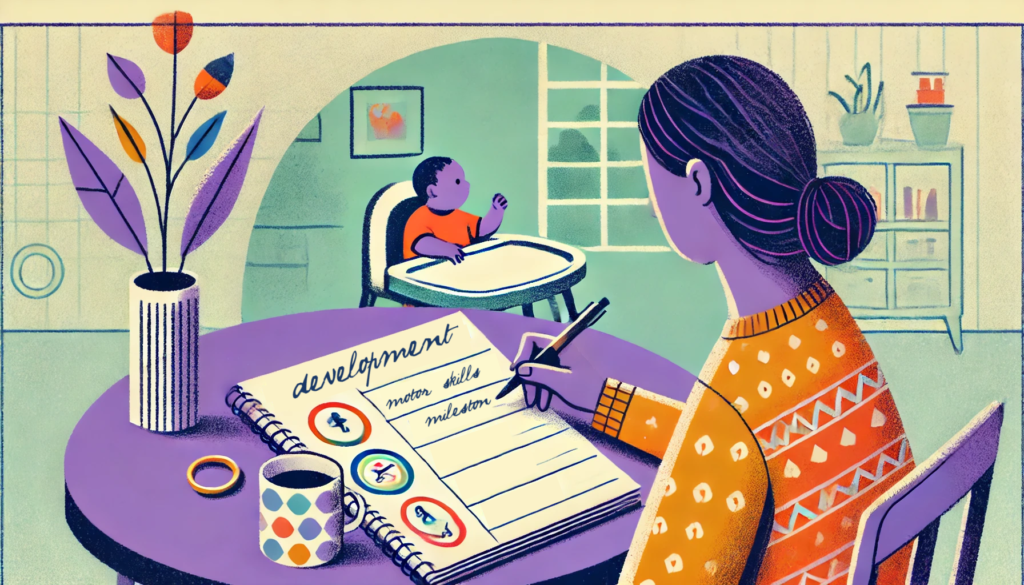
Development, Special Needs
How to Track Milestones for Developmentally Delayed Babies
Parents of developmentally delayed babies can explore practical tools and strategies to track milestones, celebrate progress, and support their child’s unique developmental journey.
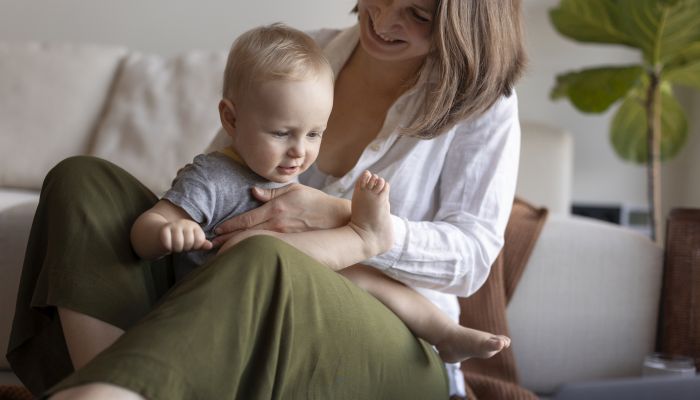
Fine and Gross Motor
5 Alternatives to Tummy Time for Babies with Motor Development Challenges
Does your baby struggle with tummy time due to motor development challenges? These alternatives to tummy time will offer the same benefits.
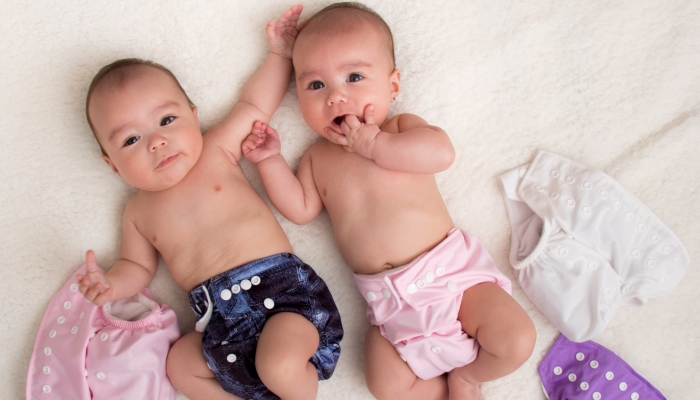
Development
Should Twins Share a Room?
Wondering if your twins should share a room? We’ll explore the pros and cons of room-sharing for twins right here before you make your decision.